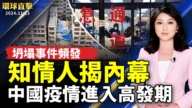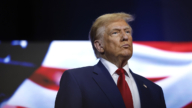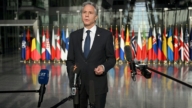【新唐人2013年11月06日讯】日、俄两国11月2号在日本东京举行了首次的“二加二战略会谈”,虽然没有明确点名,但外界猜测,这是显示双方在共同应对中国威胁上的合作姿态。日、俄建交57年,因领土纠纷,关系停滞在尚未签署《和平友好条约》阶段,也因此,这次的历史性双方会谈,格外引人注意。
日本的外务相岸田文雄、防卫相小野寺五典,俄罗斯的外交部长拉夫罗夫和国防部长绍伊古,3号在东京出席俄、日“二加二战略会谈”。双方一致同意,日本海上自卫队与俄罗斯海军在此之前实施的搜索救援联合训练,将被扩展至反恐、打击海盗等更广泛领域,强化在安保领域的合作。
继美国和日本10月初发表的外长、国防部长会谈共同声明,表示“欢迎行使集体自卫权”之后,接着是澳大利亚,俄罗斯是第三个与日本举行外交部长和国防部长会谈的国家。
有评论指出,日本首相安倍晋三能够说服俄罗斯总统普京,让俄罗斯外长和防长到东京,并展开有关问题的谈判,已经证明安倍在普京心里的份量,双方一拍即合的达成具有战略性形式的会谈方式。
旅美政论家伍凡:“俄罗斯和日本两国的外交部长和国防部长举行了会谈,这是历史上从来没有过,他在二加二会议上,不是来谈领土问题,也不是谈两国之间纠纷的问题,而是谈两国怎么样合作,建立一个亚太安全体系,就把中国丢在一边,把中国排除在外。这就非常明显了,就是要针对中共,这个局势发展,我想是出乎很多人的意料,甚至是出乎于中共的意料。”
俄罗斯这次提出了建立亚太新安全结构的概念。不过,俄罗斯没有选择在北京,而是在东京向外界宣布了这一新外交概念。中共喉舌媒体一面倒的否认“日俄会谈,盯着中国”这件事情,《新华网》的新闻标题写着,“日本企图借‘2+2’会谈拉拢俄罗斯牵制中国遭拒”,还说日本四处“公关”拉拢屡遭碰壁。
根据《美国之音》广播电台的报导,俄罗斯外长拉夫罗夫在会谈结束时,除了更正面评价了日本首相安倍的积极和平主义主张之外,他还透露了双方讨论的一些细节。
俄罗斯外长拉夫罗夫说:我们讨论了必须开始对话,在亚太地区建立新的,不带集团性质,并有多方参加了新安全结构。这个安全结构应该以安全不能分开为原则,同时照顾所有各方的利益。我们认为,日本参加有关建筑亚太安全体系的多方对话,将与落实安倍先生政府所推行的积极和平主义的政策处在同一个轨道上。
不仅如此,俄罗斯国防部长绍伊古也透露,包括俄、日两军总参谋部在内的两国军方未来将更多接触和互动。
绍伊古说:我们这次还决定,包括国防部长在内的两国军方领导人将进行定期互访。
“英国广播公司《BBC》”也分析报导了这次两国的会谈,是日、俄加强安全合作以牵制中国。
《美国之音》表示,同中国相比,俄罗斯对日本较少戒心。俄罗斯更欢迎日本投资。日本福岛核事故之后,一些带有民族主义色彩的俄罗斯政治人物甚至提出日本人是模范公民,欢迎日本居民去西伯利亚定居的主张。
日俄“二加二战略会谈”内容包括日本防卫政策、日俄防卫合作、导弹防御体制、中国与朝鲜问题以及叙利亚局势等。
采访/朱智善 编辑/黄亿美 后制/郭敬
Japan-Russia 2-Plus-Two Meeting Aims At China
On November 2, Japan and Russia held its first “two-plus-two
strategic talks" in Tokyo.
Observers speculate that it shows the two sides’ cooperation
in dealing with emerging Chinese threats.
Japan and Russia have a 57-year relationship.
Because of territorial disputes, they never signed
a postwar peace treaty.
Thus the historical meeting draws extreme concerns of many.
Japanese Foreign Minister Fumio Kishida, Defense Minister
Itsunori Onodera and their Russia counterparts, Serge Lavrov
and Sergei Shoigu attended the meeting.
The two nations agreed to develop search-and-rescue
exercises, conduct joint anti-terrorism and counter-piracy
exercises between Japan’s Maritime Self-Defense Force
and the Russia Navy, and enhance security cooperation.
It is the third foreign and defense ministers’ framework
for Japan following those with the US and Australia.
The US and Japan jointly made a statement regarding
security cooperation in a meeting held in early October.
Commentators say that Japanese Prime Minister Shinzo Abe
had persuaded Russian President Vladimir Putin to send its
foreign and defense ministers to attend a meeting in Tokyo
and negotiate relevant issues, indicating that Abe is important
in Putin’s view, thus the two sides easily set the form
of the strategic talks.
Wu Fan, US-based political commentator: “The US-Japan
foreign and defense ministers’ talks is unprecedented.
In the 2+2 meeting, territorial disputes weren’t mentioned,
but there was talk about bilateral cooperation
and establishment of an Asia-Pacific Security system.
The system excluded China, and is obviously aimed at China.
This result is unexpected, it is even beyond
China’s imagination."
This time Russia suggested an establishment of a new policy
within the Asia-Pacific Security framework.
However, Russia didn’t announce the new
diplomatic policy in Beijing, but rather in Tokyo.
The Chinese state-run media denied the Japan-Russia talks
are aimed at China.
Xinhua website published an article “Japan, Russia
hold ‘two-plus-two’ meetings which repeatedly hit the wall."
Voice of America (VOA) reported that Russian foreign
minister Lavrov talked positively at the end of the meeting
about Abe’s idea of making Japan a proactive contributor
to peace.
Lavrov also revealed some details about their bilateral talks.
Lavrov said this is precisely why Russia has been pressing for
the establishment of a new architecture in the Asia-Pacific
Region that would rely on non-bloc principles and the idea
that no country shall maintain its own security
at the expense of others.
In addition, Russian Defense Minister Sergei Shoigu
said that the two sides will have more contact and interaction,
including the General Staff’s of Armed Forces.
Shoigu added that the two sides’ leaders, including defense
ministers will meet regularly in the future.
The BBC Chinese website reported that the Japan-Russia
talks are to strengthen security cooperation to restrain China.
VOA said that compared with China,
Russia has less wariness to Japan.
Russia welcomes Japanese investment more.
After the Fukushima nuclear accident, some Russian
politicians even praised the Japanese as model citizens.
They welcome the Japanese to live in Siberia.
Japan-Russia “two-plus-two" talks include Japanese
defense strategy, Japan-Russia defense cooperation,
the missile defense system, the China-North Korea issue,
as well as the Syrian situation.




























